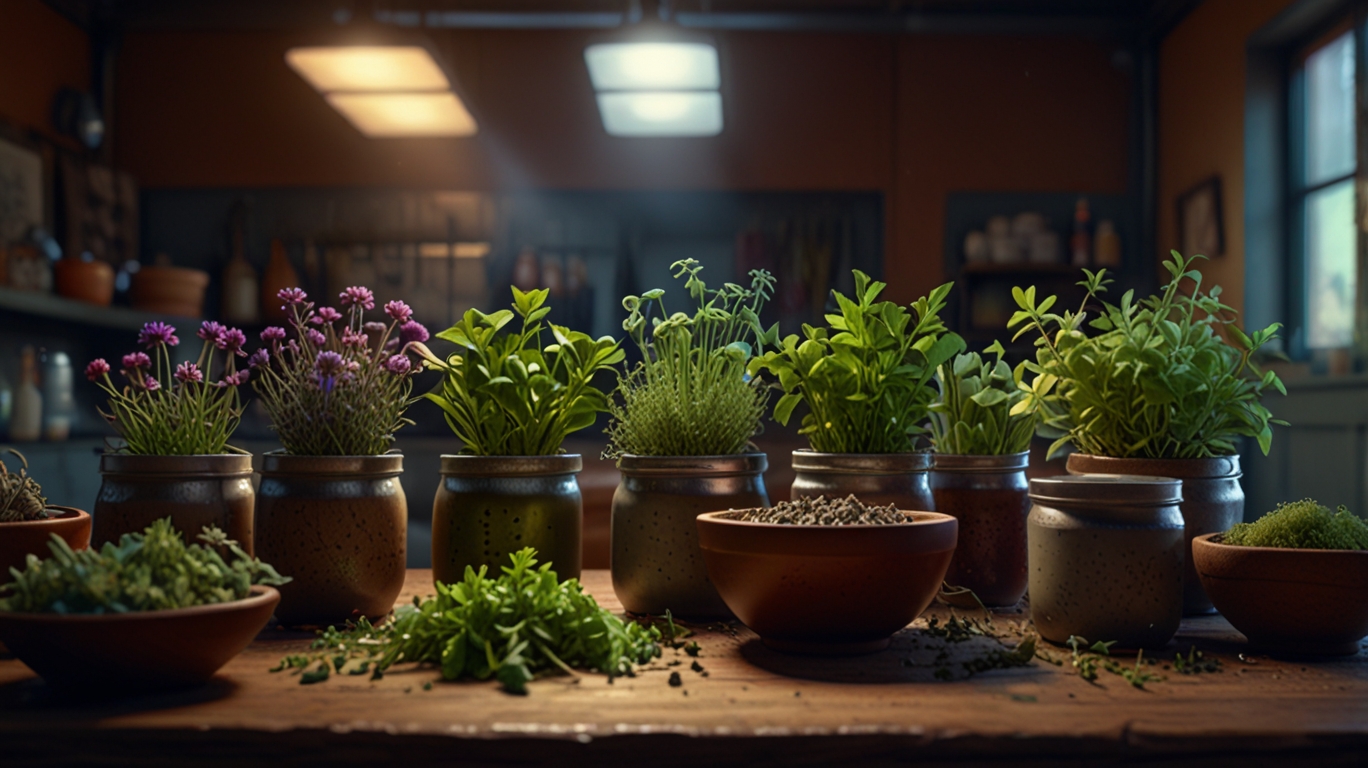Medicinal herbs have been healing humans since ancient times. Across different cultures and traditions, these natural wonders have served as the foundation for countless medical practices. They’re a testament to the age-old wisdom passed through generations, showing us how nature’s bounty can truly sustain life.
Herbs work to promote healing on multiple levels, addressing not just physical ailments but also enhancing mental clarity and emotional well-being. Unlike synthetic drugs that target specific symptoms, herbs have a holistic approach. This means they support your body’s natural balance, often with fewer side effects. Think of them as allies helping you maintain harmony and vitality.
In both modern and traditional medicine, herbs hold an esteemed place. Today, many of the drugs we rely on originate from plant compounds, underscoring the importance of these natural resources. Herbal medicine is not just about remedying illness. It’s a way to bolster health, prevent disease, and nurture a deeper connection to our environment.
So, if you’re looking to bring a touch of nature into your health routine, herbs could be your new go-to. Whether sipped in teas or mixed into culinary dishes, there’s a herb out there for everyone. Embracing herbal remedies can be a small yet impactful step toward a more balanced and healthful lifestyle.
Exploring the Big 10: Essential Herbs for Healing
Some herbs are in a league of their own, earning spots in the ‘big 10’ for their healing prowess. These are must-haves whether you’re a beginner or an herbal veteran.
First up, basil isn’t just for your pasta sauce. It’s packed with antioxidants and has a knack for reducing inflammation. Another gem is turmeric. Famous for its bright yellow hue, this herb has potent anti-inflammatory effects and can give your immune system a solid boost.
Then there’s garlic, the humble kitchen staple with powerful antibacterial properties. It’s great for the heart and could help keep those colds at bay. Don’t miss out on ginger, as it’s known to settle upset stomachs and ease joint pain. Basically, if you’re prone to nausea, ginger might just be your best friend.
Elderberry is another superstar, renowned for its immune-boosting properties and effectiveness against the flu. If you’re into calming herbs, chamomile, with its soothing effects, is a no-brainer for those stressful days.
Aloe vera, often found in skincare, is a powerhouse for healing burns and cuts, while peppermint offers relief from headaches and digestion issues; its refreshing scent is an added bonus! Another contender on the list is echinacea, famous for its ability to fend off colds and flu.
Lastly, don’t overlook sage and rosemary. Sage isn’t just good for your stuffing; it’s potent in boosting memory and cognitive function. Rosemary doesn’t just smell amazing, it’s also been noted for improving circulation and reducing joint inflammation.
Incorporating these herbs into your daily routine is easier than you’d think. Add a sprinkle of basil to your salads, brew some chamomile tea before bed, or keep a pot of rosemary on your windowsill for that extra flavor kick. With these herbs, you’re not just seasoning your food, you’re seasoning your life with health.
The Top 10 Most Commonly Used Herbs in Healing
When it comes to everyday healing, there are common herbs that most people can find in their kitchen or local stores, yet they are packed with health benefits.
Parsley often flies under the radar, but this herb is loaded with vitamins A and C and is a powerful detoxifier. Add it to your meals for a fresh burst of nutrition.
Lavender isn’t just for aroma; this calming herb is a go-to for reducing stress and improving sleep quality. Pop it in a sachet under your pillow or brew some lavender tea for a relaxing evening.
Thyme doesn’t just bring flavor; it’s renowned for its antimicrobial properties, making it a great companion during cold season.
Bay leaves might seem old-school, but they’re known to improve digestion and are rich in vitamin A, C, iron, potassium, calcium, and magnesium.
Basil comes into play again for its versatility and antioxidant content, making it a kitchen staple that offers both flavor and a health punch.
Cilantro is famous in culinary circles for a reason and also helps with heavy metal detoxification.
Dill, besides livening up pickles, can aid in digestion and soothe hiccups.
Oregano is more than just a pizza topping. It boasts antibacterial properties and is loaded with antioxidants.
Rosemary pops up again, not just as a fragrance but also for its potential to boost memory.
Mint makes frequent appearances, refreshing us with its benefits for digestion and respiratory health.
Scientific research backs the health benefits of these herbs, making them a wise choice for anyone looking to enhance their wellness toolkit. Using these herbs in daily cooking or as teas and infusions can keep you grounded in good health.
Integrating Herbs into a Modern Wellness Lifestyle
So, you’re ready to bring herbs into your modern wellness lifestyle? Growing your own or finding quality sources is step one. Fresh herbs from the garden or organic store-bought options can make a world of difference. Not only do they taste better, but they’re also higher in nutrients.
Using herbs in cooking is a no-brainer. For example, sage and rosemary add great flavor without the extra calories or salt. Toss some fresh basil onto your tomato slices, mix some parsley into your morning smoothie, or steep rosemary for a refreshing drink. The ideas are endless, and your body will thank you.
Got the itch for herbal home remedies? With simple ingredients like peppermint, ginger, and chamomile, you can craft your own teas or infusions at home. They’re perfect for soothing a sore throat or winding down after a busy day.
Safety is key in any wellness routine, especially when it comes to herbs. Always start with small amounts to see how your body reacts, and do some homework if you’re adding something new to your diet. Consulting with a professional might also be a good call to avoid any unexpected interactions, especially if you’re already on medication.
Consistent use is where the magic happens; herbs are most effective when part of your regular routine. Being mindful and intentional in using herbs creates a rhythm to your wellness practice that supports long-term health. Explore, experiment, and enjoy the benefits that these natural botanicals bring to the table.

